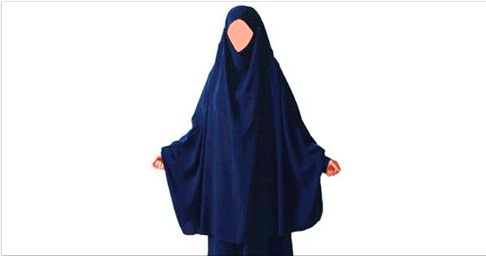Despite remaining defiant to the bitter end, Muammar Gaddafi’s 42-year regime came to an abrupt end when rebel forces killed the eccentric despot on October 20, 2011. As images of the cheering crowd parading the 69-year-old Gaddafi’s bloodied body through the streets of Sirte spread across the country, the world saw Libyan men and women wildly celebrating what they hoped was a new beginning for their country.
The women waved flags, sang and cried alongside their husbands, fathers and sons because they felt an unprecedented sense of ownership in this revolution. Few would dispute Libyan women’s role in the overthrow of Gaddafi and his loyalists, but even fewer can say whether or not these female revolutionaries will find what they now seek: a safe state guided by Islamic principles that recognizes women as valuable peacemakers in post-war reconstruction.
Libya’s eight month civil war propelled women in a deeply traditional society into roles they never imagined. Many went from a rather cloistered day-to-day life as housewives to leaving their homes and traveling to the frontlines of the war. There, they took on roles as nurses tending to the wounded or cooks in makeshift kitchens serving rebels. Some were audacious enough to work as spies positioned inside Gaddafi’s strongholds, smuggling weapons and information. Even Libyan women in the diaspora returned to provide humanitarian aid to the internally displaced who had fled the fighting in the northern and western provinces. Libyan women carved out a space for their participation in the revolution, yet now they fear being swept back to the sidelines.
As much as they want active, decision-making roles in their country, Libyan women are hesitant to become part of the political process without a guaranteed safe and enabling environment. Gaddafi, a self-appointed champion of women, devoted a large portion of his “Green Book” to extolling the virtues of women, but these musings remained just that—empty promises. In 2009, Libya remained a deeply patriarchal society, ranking 91st out of 102 countries for gender equality according to an index published by the Organization for Economic Co-operation and Development. Not only did Gaddafi’s regime deliver little in the way of rights to its female citizens, his security forces were notorious for mistreating women with impunity. Fear of sexual coercion by the tyrant’s cronies was rife among women who were bold enough to venture into the political arena. The dangerous environment served as an automatic deterrent for ambitious women who hope, now that Gaddafi’s government has been dismantled, they will enjoy a safer, more enabling backdrop for their political aspirations.
Libyan women seem to want a safe state guided by Islamic principles since the country experienced an Islamic awakening in recent years, a response, in part, to the moral corruption and licentiousness of Gaddafi’s government (many women began to wear the head scarf specifically because Gaddafi criticized traditional Islamic dress and encouraged women to adopt fashionable Western garb). Contrary to Western assumptions, Libyan women have not expressed a blanket opposition to Islamic law and, in fact, many feel it offers a strong framework for protecting their rights in contrast to hardened cultural norms that place men squarely above women. Their anxiety, however, lies with the trend towards imposing an inflexible, monolithic interpretation of Islamic law that does not consider the nuances of individual circumstances.
Libyan women are hungry for a state anchored by Islamic principles that welcomes their participation in nation-building. Libyan men must realize that in order to keep the country from descending into chaos and corruption once more, they require the help of their female counterparts. A 2009 study by the Peace Research Institute of Oslo concluded that while men are more likely to die during conflicts, women suffer and/or die more often of indirect causes after the conflict is over. In peace time, women generally bear the responsibility for the health of the family and the education of children; once the war is over, they often take up the added burden of caring for ill and injured spouses and sons while becoming the family’s sole provider. Because women often suffer more post-conflict than men, it stands to reason that they have a greater incentive to pursue non-violent strategies and create a durable peace. It is crucial that Libya’s new government create space for women on the political stage and allow them to have decision-making roles in disarmament and post-war reconstruction efforts.
The question on Libyan women’s minds today is whether or not their roles in the revolution are sustainable now that the civil war has come to an end. The 51-member Transitional National Council has just one female member, but the revolution has raised both women’s expectations and their demands, and one hopes they will find a space at the nation-building table.
(Photograph by Jonathan Ernst, Reuters)
Zehra Rizavi is the Managing Editor at AltMuslimah.




